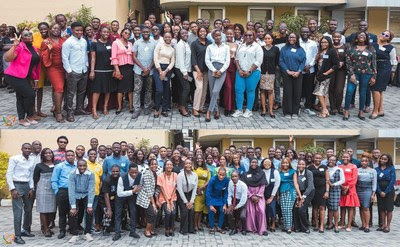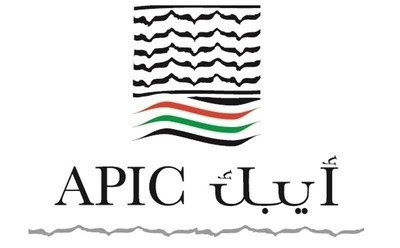سان فرانسيسكو،, 11 أغسطس / آب 2022/PRNewswire/ — أكملت Flutterwave، الشركة الرائدة في مجال تكنولوجيا المدفوعات في أفريقيا، عملية التوظيف لبرنامجها الافتتاحي للمتدربين الخريجين، حيث وظفت 200 متدرب، ونمت قاعدة موظفيها بنسبة 38%. يهدف البرنامج المدفوع الأجر إلى تغذية الشباب النيجيري من خلال تطوير مهاراتهم التقنية والناعمة، وتعريضهم لحلول الشركة ومنتجاتها، ومنحهم الخبرة في العمل في منظمة عالمية. هذا البرنامج هو أول مشروع لرئيس الشعب والثقافة الجديد عند الانضمام مرة أخرى إلى Flutterwave.

مانسي بابلوني، رئيسة مسؤولي الشعب والثقافة الجديدة كانت سابقًا رئيسة الاستراتيجية العالمية والمشاريع الخاصة لـ Flutterwave في عام 2020، قبل أن تغادر للحصول على فرصة في ممارسة PwC ‘s People and Org . في لندن، المملكة المتحدة. وهي تنضم مرة أخرى إلى Flutterwave كمسؤول حماية الطفل وستركز على الاستثمار في الأشخاص والثقافة والعمليات لدفع النمو للمؤسسة.
افتتحت Flutterwave بوابة التطبيق في 1 يوليو 2022 لتمكين الخريجين الشباب في جميع أنحاء نيجيريا من التقدم لشغل مناصب مختلفة في الشركة. أغلقت البوابة في 15 يوليو مع 11000 طلب و 200 مرشح مما جعلها مهتمة بالبرنامج بعد عملية توظيف شاملة. تلقى المرشحون عروضهم في الخامس من أغسطس، وسيبدأ تأهيلهم لمدة أسبوعين على الفور.
يهدف البرنامج إلى دعم المواهب الشابة في نيجيريا والتي بدورها ستدعم حاجة Flutterwave المتزايدة للمواهب، حيث تعمل على تحقيق أهداف النمو والتوسع. تدعم Flutterwave حاليًا أكثر من 1000000 شركة وتتطلب تدفقًا ثابتًا من المواهب الجديدة من أجل الحفاظ على نموها المستمر.

قال أولوغبنغا جي بي أغبولا، المؤسس والرئيس التنفيذي لشركة Flutterwave ، “برنامج المتدربين الخريجين هو جزء أساسي من جهودنا المستمرة لدعم المواهب الشابة ومساعدتهم على بدء حياتهم المهنية. على مر السنين، كنا نفكر في تطوير برنامج يعمل كخط أنابيب للمواهب من الجامعة إلى القوى العاملة. نحن سعداء لأن مانسي وكل فريق الناس والثقافة في Flutterwave جعلوا هذا حقيقة واقعة. بسبب هذا المشروع، سيكون لدى 200 شخص فرصة لاقتحام حياتهم المهنية والبدء في الطريق نحو تحقيق أحلامهم. نحن سعداء بعودة مانسي ودفعها لمشاريع مؤثرة في شهرها الأول معنا”.
نبذة عن Flutterwave
Flutterwave هي شركة تكنولوجيا مدفوعات تمكن الشركات في جميع أنحاء العالم من توسيع عملياتها في أفريقيا والأسواق الناشئة الأخرى من خلال منصة تمكن المعاملات عبر الحدود عبر واجهة برمجة تطبيقات واحدة. قامت Flutterwave بمعالجة أكثر من 200 مليون معاملة تزيد قيمتها عن 16 مليار دولار أمريكي حتى الآن ويخدم أكثر من 1،000،000 شركة بما في ذلك Uber و Flywire و , Booking.com إلخ. الميزة الرئيسية للشركة هي معالجة المدفوعات الدولية بـ 150 عملة وطرق دفع متعددة بما في ذلك البطاقات المحلية والدولية ومحافظ الهاتف المحمول والتحويلات المصرفية والمقايضة بواسطة Flutterwave إلخ. تمتلك Flutterwave بنية تحتية تصل إلى أكثر من 34 دولة أفريقية، بما في ذلك نيجيريا وأوغندا وكينيا وجنوب إفريقيا. لمزيد من المعلومات حول رحلة Flutterwave ، يُرجى زيارة: www.flutterwave.com .
الصورة – https://mma.prnewswire.com/
الصورة – https://mma.prnewswire.com/
